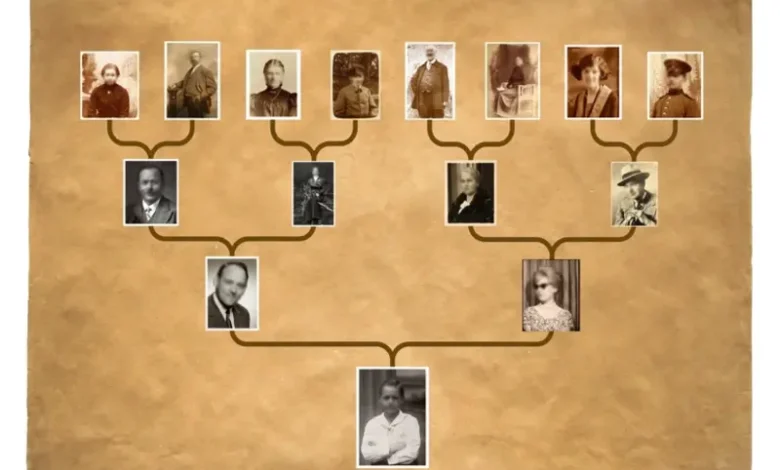The Ministry of Justice of Ukraine explained how you can research your family tree in Ukrainian archives

Genealogy research in Ukraine is not a tribute to romantic notions, it is a long, often painstaking process, which is based on real sources and archival documents. It begins not with coats of arms and noble legends, but with conversations, with yellowed photographs, preserved certificates, barely legible metric records. The Ministry of Justice of Ukraine provided clarification, exactly how you can research your own family history with the help of archives. In the public space, brief instructions or schematic advice are mostly given on this topic. But, to be serious, this is a complex and systemic matter that requires concentration, endurance and careful attention to sources.
In the structure of the country’s archival system, there are several types of institutions to which you can turn. Among them are central state historical archives in Kyiv and Lviv, regional archives, archives of civil status registration bodies, branch archives. All these institutions keep documents that may contain information about individuals, families, their origin, social status, religion, place of residence, etc.
The Ministry of Justice emphasizes that there is no centralized archival fund in Ukraine that would contain ready-made genealogies or genealogical tables. The history of each family is recorded in different sources, which are divided into funds and descriptions, and are not automatically connected. Accordingly, the researcher must independently study the available documents, compare data and compile a pedigree based on fragmentary information.
The Ministry of Justice recommends starting research by interviewing older relatives and reviewing family archives. It is about collecting all the documents available in the family: birth, marriage, death certificates, military tickets, letters, photos, notebooks, diplomas. It is also important to collect oral evidence: names, patronymics, maiden names, dates of birth, religion, place of residence, education, services. Such information makes it possible to draw up a primary picture and to determine key points of reference for reference to the archives.
After collecting the basic data — names, approximate years of birth, geographic coordinates of residence — you can contact the archives responsible for these regions. The Ministry of Justice reports that most research in the genealogical field is conducted in the Central State Historical Archive of Ukraine in Kyiv, in the Central State Historical Archive of Ukraine in Lviv, as well as in state archives at the regional level. In these institutions, the most complete and chronologically broad funds, which contain the necessary documents, are kept.
For the types of documents most relevant to genealogy, the Department of Justice identifies several key categories:
– metric books, where acts of birth, marriage and death were recorded;
– Reviz tales — census documents from the 18th — mid-19th centuries, which contained data on the male population: age, place of residence, family ties, status;
– confession information – church documents that reflected the annual confession of all parishioners of a certain church, allowing to trace the composition of the family in a certain year;
– service records – documents on the official biography of officials, doctors, teachers, military personnel, including information about the place of birth, education, career path;
– civil status registration acts — birth, marriage, and death records that were kept in the RACS system during the Soviet period;
– archival files of repressed persons, which store interrogation protocols, autobiographies, characteristics, indictment documents.
The Ministry of Justice warns that studying such sources requires independent participation, careful reading, and sometimes knowledge of historical contexts, the original language, and the skills of reading old writing. There are Ukrainian, Russian, Polish, Latin and Church Slavonic languages. In some regions, documents may be damaged or partially lost due to historical disasters.
Access to archival documents in state archives requires filling out an application in the prescribed form and presenting an identity document. In some cases, the archive may provide access to electronic copies or conduct independent searches on request, but as a rule, the researcher works with the materials himself in the reading room.
The Ministry reports that tens of millions of digital copies of archival documents related to genealogical topics are already available. They are posted free of charge on the Interarchival Search Portal, on the official websites of state archives, as well as on the web resources of partners engaged in digitization. Viewing such copies is often possible remotely, without the need to personally visit the archive.
At the same time, according to the Ministry of Justice, the State Archives Service of Ukraine has a medium-term plan to complete the digitization of key funds within 3-5 years, which will significantly facilitate access to genealogical information for a wide range of users.
Thus, the official position of the Ministry of Justice of Ukraine is that genealogical research is possible, but requires independent work with archival materials. There are no ready-made genealogical tables or a centralized database of pedigrees in Ukraine. Anyone who wants to learn more about their ancestry must go from collecting family information to going to archives and gradually analyzing sources that preserve scattered but valuable fragments of individual history.





